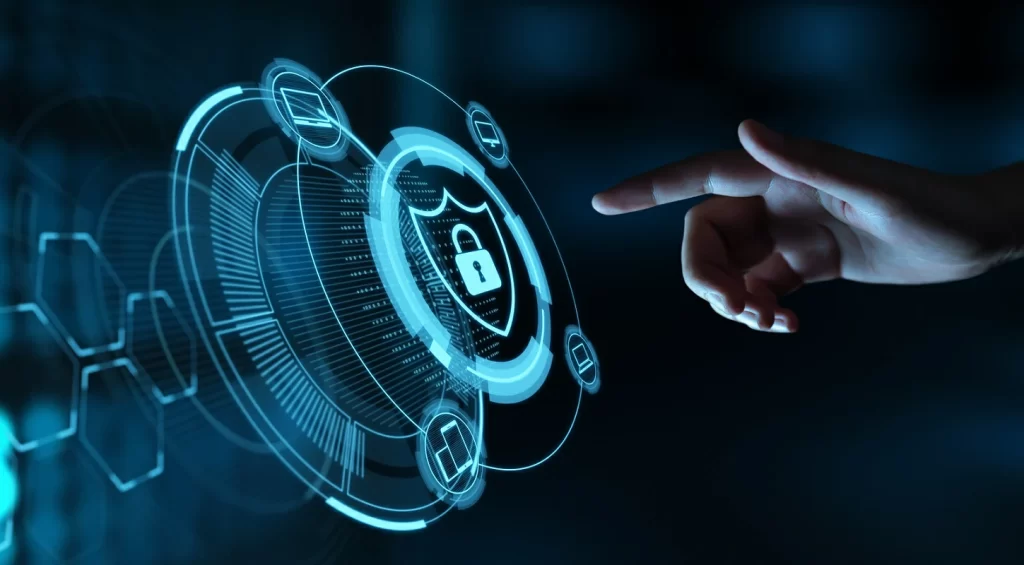Regardless of environments, digital or analog, data protection is essentialExperts in the field have spent years analyzing the differences in security in these areasWhat do specialists think about the role of decentralization in privacy?
If there are two issues that computer enthusiasts are interested in lately, we could say that those are security and blockchain. Basically, the success of one will depend on the progress of the others. Is that, As we might imagine, the protection of sensitive data is key to the future of the blockchain.. But how does blockchain technology impact security and what do you need to know?
Experts have been warning for many months about the importance of protecting private information. Even warning about possible inconsistencies between the security of the digital world and that of the analog world.
The relevance of data protection
Fabrega states that data protection it is important in blockchain environments because it is important outside of them. Contrary to others who are dedicated to these issues, she maintains that the operation of the protection of the most sensitive information of users cannot and should not differ much between digital and analog.
In any of these universes, data protection efforts are intended to no individual or company outside the legitimate owner of that information can access it and use it. Of course, he admits that in use there are distinctions between the two environments. But they are practical, not conceptual.
While in the analog world we are often willing to hand over personal data in exchange for a specific product or service, or to be part of a social network, the main risk is cyber attacks.
On the other hand, in the digital world, the legal sharing of data is similar, accepting that we “deliver” it. Something similar happens with the dangers that lie in wait for uswhich are represented by those external threats.
Blockchain is the hope
But beyond what they have in common, hope in the sector is pinned on the development of the blockchain. These spaces are inviolable and, to modify the information they contain, a cyberattack would have to be massive, affecting practically all copies of the registry simultaneously, something that is unlikely to happen.
What happens then is that the security potential of virtual spaces is much more interesting. Thanks to those block chain specifications absent in analog, Fabrega believes that specific regulatory frameworks should be adopted to prepare us for decentralized privacy.
Is blockchain a viable way to protect intellectual property?
If it is intellectual property, and with the already inevitable relationship between data protection and blockchain raised, we could think that due to its virtues the blockchain is ideal to preserve these rights.
Let us imagine for example the case of a work of art, of which its painter wants to protect the intellectual property. Blockchain would be an absolutely perfect solution, because you could prove your ownership whenever you want. It will generate a unique alphanumeric code, to which only he will have access, and nothing else will be needed later.
Additionally, it is possible to produce a time stamp, which will provide extra information about the day and time associated with that frame. And if someone tries to tamper with the data without permission, you’ll find that it’s completely unchangeable.
Concrete examples of appropriation
Today, the professional reminds us that important institutions involved in the protection of intellectual property rights are entering the blockchain universe and obtaining successful results.
One case is that of the European Union Intellectual Property Officewhich recently connected its search services, Design View and TMView, via blockchain, to offer real-time brand and design data.
And they are deploying their 2025 Digital Evolution Program, a Registry of Intellectual Property Rights complementary to analog or digital ones but from previous generations, which is based on blockchain.
What are the challenges of data protection in the blockchain?
The expert assures that the main challenge they encounter when doing this approach is that many of those regulations they work with on a daily basis are not designed for blockchainsthey have certain “legal loopholes” that forsake those who adjust their infrastructures to this new technology.
Essential principles that make up the blockchain, such as the permanence and inalterability that governs the block chain, can go against some current regulations, so it is essential to establish new provisions.
In summary, this specialist affirms that until the current legal systems are modified, and the blockchain method can be developed on the same ground, there will always be doubts about its definitive adoption.

